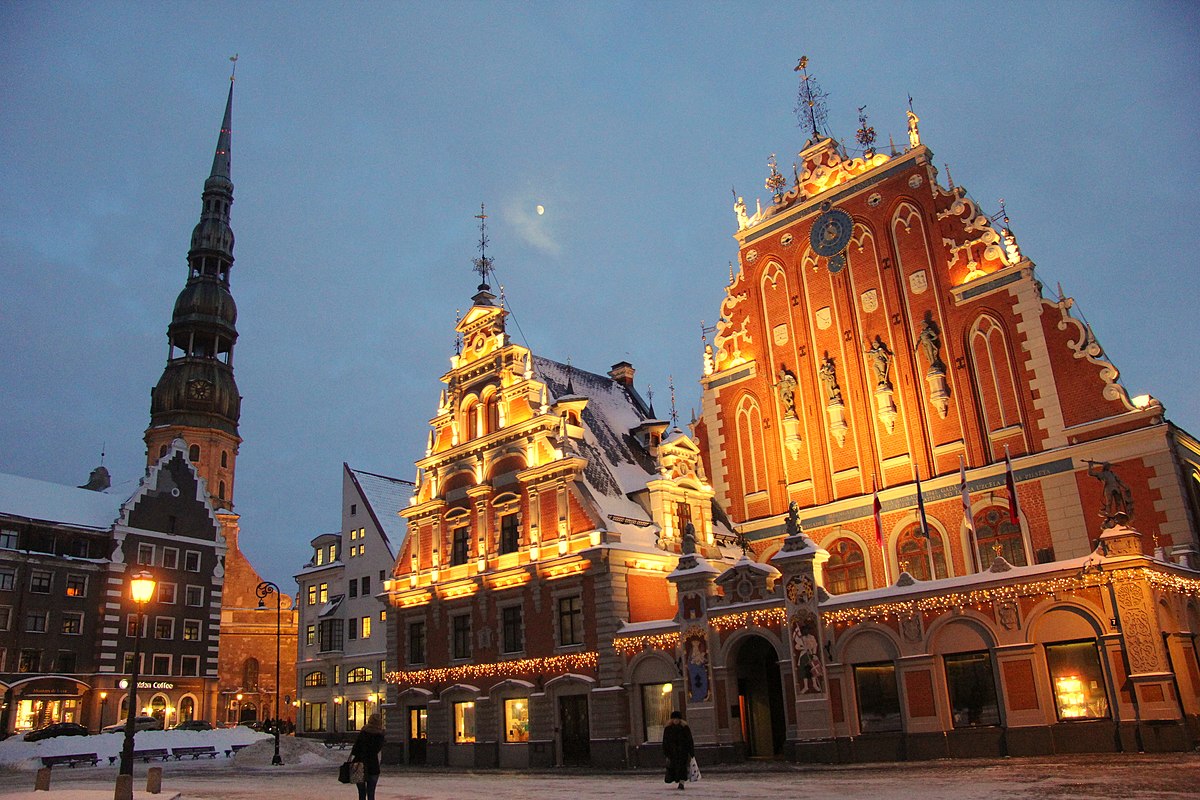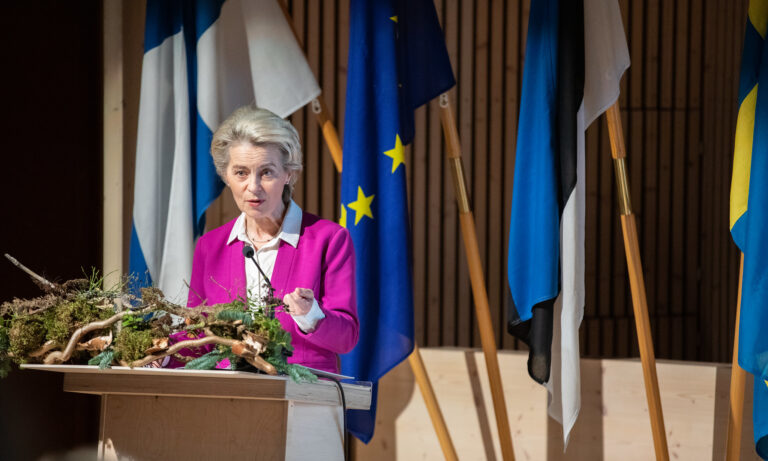
China’s economic and political growth, as well as future intentions, are an increasingly interesting issue for debate. Latvia is not an exception. While Beijing endeavored to expand its foreign relations and economic might with infrastructure projects and investments, the Latvian political elite has expressed an increasing interest in cooperation and building a long-term partnership. However, due to the lack of practical activities for mutual economic benefit, a shadow of suspicion regarding the introduction of 5G, deterioration of EU-China relations and some other negative developments, the political optimism of the Latvian elite has been decreasing. According to opinion polls, the inhabitants of Latvia also look at China with some suspicion regarding its true intentions, thus placing it in a row with other external threats.
Threat Perceptions in Latvia
In order to capture the specific nuances, it is necessary to examine these perceptions and to view them in a broader picture of the subjective perception of security within the Latvian society. This means exploring the public opinion in Latvia concerning China, existing fears and doubts regarding it, and integrating these perceptions in a wider conceptualization of security threats in four dimensions: perception of current security situation; relations between internal and external threats; attitudes towards specific external threats and prospects of the development of the security situation and the improvement of perceptions.
Threat perception in Latvia, in general, is on a high level, which is shown by several determinants. Among the most important ones is the past legacy. This includes some features of old mindsets such as lack of trust towards social and political institutions, fear of otherness, or the division between “friends and foes”. At the same time, according to different types of research and opinion polls, internal social and economic challenges are seen as more important than any external threats. As several different studies and opinion polls demonstrate, this is accompanied b a lack of trust towards governmental institutions. While officials see external threats such as those caused by Russia as the main threats for the country, citizens rather identify the internal ones as the most dangerous. This creates an environment where any new reforms or political initiatives face public dissatisfaction or even resistance. This involves foreign policies and could potentially create barriers for any closer cooperation initiatives with not so familiar actors, such as China.
Analysis of public perceptions suggests that there are six determinant factors of particular importance in placing China as a potential threat in Latvia: historical legacy of Soviet occupation, internal political and economic situation, lack of information and existing stereotypes about contemporary China, absence of many practical real-life cooperation projects between Latvia and China, as well as various China’s influence operations in Europe.
How Do Latvians See China?
According to Security Radar, last year Latvians saw China as one of the top three countries that pose a threat to their country. The first two are Russia and the US. Unlike these two countries, Latvians do not associate China with militarization, but rather with other threats such as economic oppression, potential migration flows, as well as challenges in cyberspace, especially as regards the implementation of 5G. At the same time, many of the respondents who have demonstrated these fears have also manifested a lack of knowledge about China and its intentions. During focus group interviews, part of the respondents who were concerned about China’s influence reflected conspiracy theories translated in Russian state media or other media channels, such as YouTube, for example. And it is not surprising. According to statistics provided by Latvian Research Centre SKDS, a bit more than half of Latvians believe that their life is influenced by various conspiracies.
Statistically, the share of respondents in the focus group interviews who expressed a fundamental fear of China as a hostile actor can’t be defined as very large and noteworthy. While Latvians fear potential risks, at the same time they also recognize the potential benefits of cooperation with China. As a result, Latvians are evenly divided in their favorable and unfavorable assessments of China.
According to statistics, 88 % of inhabitants of Latvia believe that their country has a unique culture that should be increasingly protected, and 65 % think that immigration of labor force is undesirable. This should be considered as one of the most important factors intensifying fears about potential migration flows or higher human mobility and intercultural exchanges. Focus group interviews demonstrated that respondents had some concerns regarding the possible interest of Chinese nationals in immigrating to Latvia. These fears were particularly pronounced in the regions and were not so dominant in the capital Riga and its surroundings. This brings us to the conclusion that higher international mobility has a positive impact on perceptions of China.
At the same time, the overall assessment of China can be characterized by a lack of deeper knowledge about contemporary Chinese society, politics, as well as intentions. Perceptions are often based on stereotypes about Chinese history and culture, with emphasis on associations with cheap labor and cheap, low-quality goods, as well as communism and socialism. Socialist ideology is seen highly negatively and is associated with negative past experiences people have had during the Soviet occupation. Thus, this set of feelings and perceptions creates fertile soil for negative associations with China.
It is interesting that while in other countries China’s human rights record is an issue for critics, and thus a source for negative attitudes, this issue remains underrepresented in the Latvian society. It could be partly explained by the fact that a bit more than 40 % of Latvians support the idea that some freedoms could be limited for the sake of economic development. Another explanation would relate to China being seen as something very distant and rather exotic having not much influence on people’s lives. Moreover, there are no significant societal discussions on China’s influence through such initiatives as “Belt and Road” or 17+1 format either. This supports the argument regarding the subjective perception of distance.
An explanation for this feeling of distance might be found in the lack of information in Latvian national media. Till the COVID-19 epidemic, China did not appear in news headlines so often and there is also not much analytic journalism focusing on the Chinese investments and infrastructure projects in Europe or the twists and turns of EU- China political relations. People are largely unaware of China’s approach towards economic and trade policies, as well as its propaganda campaigns or cyber threats it may pose.
At the same time, 86 % of Latvians recognize that the prosperity of their country “is in many respects linked to the well-being and positive development of other countries”. This, in turn, creates space for further development of cooperation also with China. Simultaneously, it should be considered that Latvian society strongly supports European integration and is one of the most pro-European nations in the EU. More than half of Latvians support the idea that Latvian economical prosperity is more dependent on the EU than on other parts of the World. This means that cooperation with China in a potentially more effective way could rather be seen as cooperation between the EU and China.
How Do Perceptions Interplay with the Official Policy?
Although China is not a significant issue in Latvia, China’s emergence in the region has led to increased interest. During recent years, the attitude of the Latvian political elite towards cooperation with China has transformed from very optimistic towards pragmatically realistic. This goes hand in hand official European approach. Latvian government expresses its readiness to be an active and reliable member of EU and NATO sharing common Western values and norms. This determines Latvian foreign policy priorities and orientation, as well as its approach towards the transformation of the international system caused by the interplay between the US, China, the EU and Russia. One example is the issue of 5G implementation. By signing the “Joint Declaration on 5G Security” with the US in February this year, Latvia has aligned future development of its 5G communications networks with the US, thus avoiding cooperation with Chinese companies, and in particular Huawei, in vital parts of 5G networks. At the same time, the Latvian government does see certain opportunities for cooperation with Chinese counterparts in transport and logistics.
Despite the low public interest and knowledge about the opportunities and threats of Latvia’s co-operation with China, there seems to be little potential for a significant improvement of perceptions of China. Latvian society is one of the most pro-European and pro-NATO societies in Europe, and similar policies of the government thus enjoy popular support. In the case of intensification of current tensions between China and the West, it is safe to assume that the Latvian government and society will only strengthen their pro-Western orientation.
Primary data for the article was gathered during 12 focus group interviews realized in different regions of Latvia, in 2019. These research activities were conducted by researchers of University of Latvia, including the author of the article, within the project lzp-2018/1-0480 «The Subjective Security Perception of the Inhabitants of Latvia: Influence on Security Policy Making» during September 2019-January 2020.
Written by
Sigita Struberga
Sigita Struberga is a Researcher at the Latvia-China Academic Exchange Centre, University of Latvia


